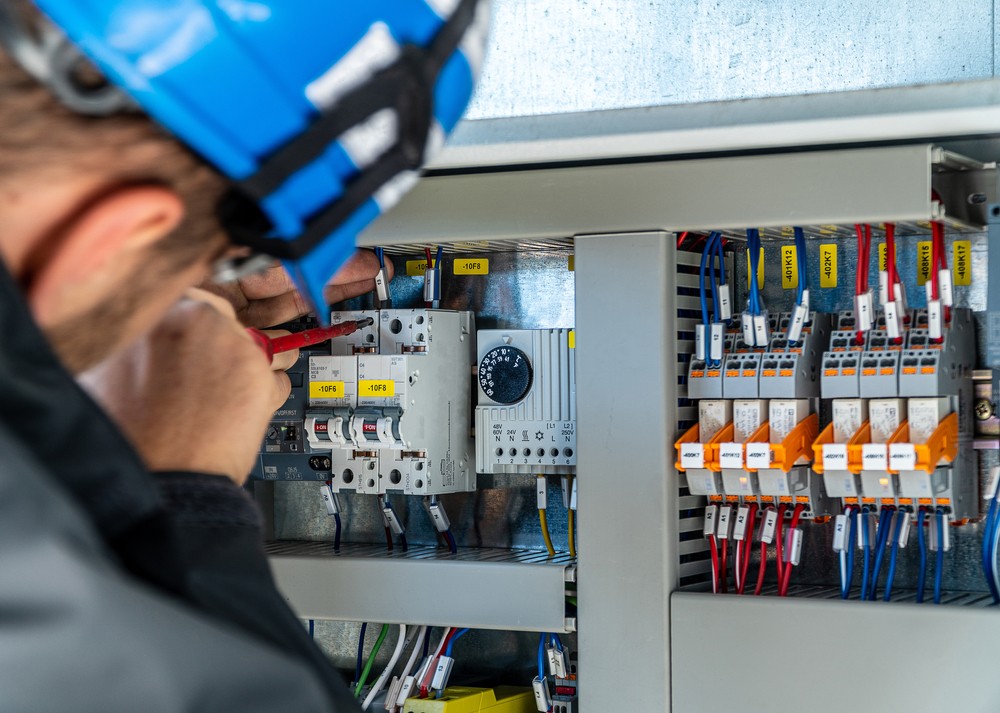Though electrical engineering is an essential staple for any building development or maintenance, it often feels overwhelmingly complicated and inaccessible. There is a vast array of engineers to handle all different types of buildings and structures, but here at MTA our staff of experts in electrical engineering are specifically educated and experienced in the electrical systems of commercial and industrial buildings. As a building manager or superintendent, you’re responsible for the integrity of the physical and electrical structure, so bringing on the right engineer is critical.
Electrical Engineer Skillsets
To scale out to the bigger picture, electrical engineers can work in many different industries, each with their own specific skill set. These skills can range from project management to intricate knowledge in basic circuit theory. In addition to the skills, the tools and equipment needed for an electrical engineer may also vary, like a voltmeter to a top-end analyzer, to advanced design and manufacturing software.
In essence, they are responsible for designing, developing, maintaining, and constantly upgrading various electrical systems and equipment by evaluating power systems, conducting studies, and developing electrical drawings.
The science behind all electrical engineering projects, small or large, is the same in basic concept. Electric power is generated and distributed in machines, such as cars and smartphones, or appliances and lights within a home or building. Therefore, electrical engineers are essential for companies, providing the necessary support to maintain these electrical systems.
Electrical Engineer Responsibilities
The responsibilities of electrical engineers typically include:
- Analyzing data
- Research
- Electrical drawings
- Executing studies such as arc flash, power system evaluation, short circuit analysis, and coordination
- Writing reports and preparing project specifications
- Designing alternate ways to utilize power
- Supervise the manufacturing of electrical equipment
- Develop standards for electrical manufacturing, construction, and installation
- Management, in regard to various electrical projects so work is completed to a high standard, on an efficient timeline, and within budget
At MTA we are focused specifically on commercial and industrial buildings – ensuring your building is up to current industry standards. Our engineers create electrical drawings and execute studies such as arc flash, power system evaluation, short circuit analysis, and coordination services for the commercial and industrial electrical industry, while our technicians perform testing.
- An arc flash study evaluates your workplace building or facility to determine if there are any hazards or risks in the electrical system. An electric arc is a luminous bridge formed in a gap between electrodes – that flash of light you see when you accidentally plug in an appliance that’s turned on. This occurs during a fault or short circuit and can occur from accidental contact, dust build-up, or faulty equipment.
- A power system evaluation determines a power system’s reliability and efficiency. The electrical engineer is tasked with making sure the power system is as safe as possible and complies with OSHA regulations. Depending on the results, the electrical engineer might recommend an alternate system design, but will be there to support you with every aspect of the transition process. These changes can result in improved system reliability which may help you avoid a costly power outage.
- Electrical drawings illustrate the entire electrical system within a building allowing you to prevent any potential danger as well as preparing for an emergency. These drawings include the external wiring, layouts of the electrical circuits, and how the electrical system exists in your floor plan.
- A short circuit analysis evaluates a power system’s reaction to a fault that produces a large amount of destructive energy. This analysis may result in recommending preventative maintenance, which is much more affordable than having to replace expensive electrical equipment.
- Coordination studies are a key element in keeping a building’s electrical system maintained. They provide an analysis of all the essential components of the entire electrical distribution process. This is extremely important to a facility or building’s overall electrical system.
- Electrical testing examines the operating performance of specific components when the electrical power is turned on. This is essential in keeping a building current with NFPA, NEC, and IEEE standards. This ensures these components perform as the manufacturer has intended after installation and operation. We perform medium- and low-voltage acceptance, maintenance, and commissioning testing and infrared scanning of various electrical components such as, but not limited to, starters, transformers, motor control centers, circuit breakers, and grounding systems.
Coordination studies are recommended and, in some cases, required for businesses and various companies that have power distribution systems. They are especially important in system inspection, for new installations, repair, or following an unplanned event. These studies are focused on power distribution protection by evaluating the effect of equipment failures and fault currents within a power system and to help analyze how the faulty power impacts the system operation. This could be a short circuit, an arc flash, equipment damage, or any other electrical damage. Ultimately the coordination study’s purpose is to analyze and evaluate an entire electrical system’s fuses and breakers – specifically analyzing their overcurrent curves which shows how fast or slow a protective device will interrupt a circuit based on the current. Then they are compared against one another to point to any potential failures. When a system is coordinated successfully, the protective devices are able to minimize the impact of failures by disabling only those parts of the system that are affected by the problem. If the electrical power systems are not designed with protective device coordination in mind, this can result in immense damage to a power system causing a building or facility shutdown, or even causing bodily harm. Therefore, coordination studies are necessary to ensure personnel safety, as well as maintaining a healthy electrical system that runs smoothly.
Once the electrical engineer has fully analyzed the data, they will provide a detailed report to their client. The report will contain an overall assessment and any recommended adjustments, improvements, or needed repairs.
Ultimately, electrical engineers are a vital connection between electrical power and how it’s operated. They are an excellent resource in keeping your building running smoothly. For questions regarding your building’s power system in California, or to schedule a power system study, contact MTA Electrical Engineers today.

